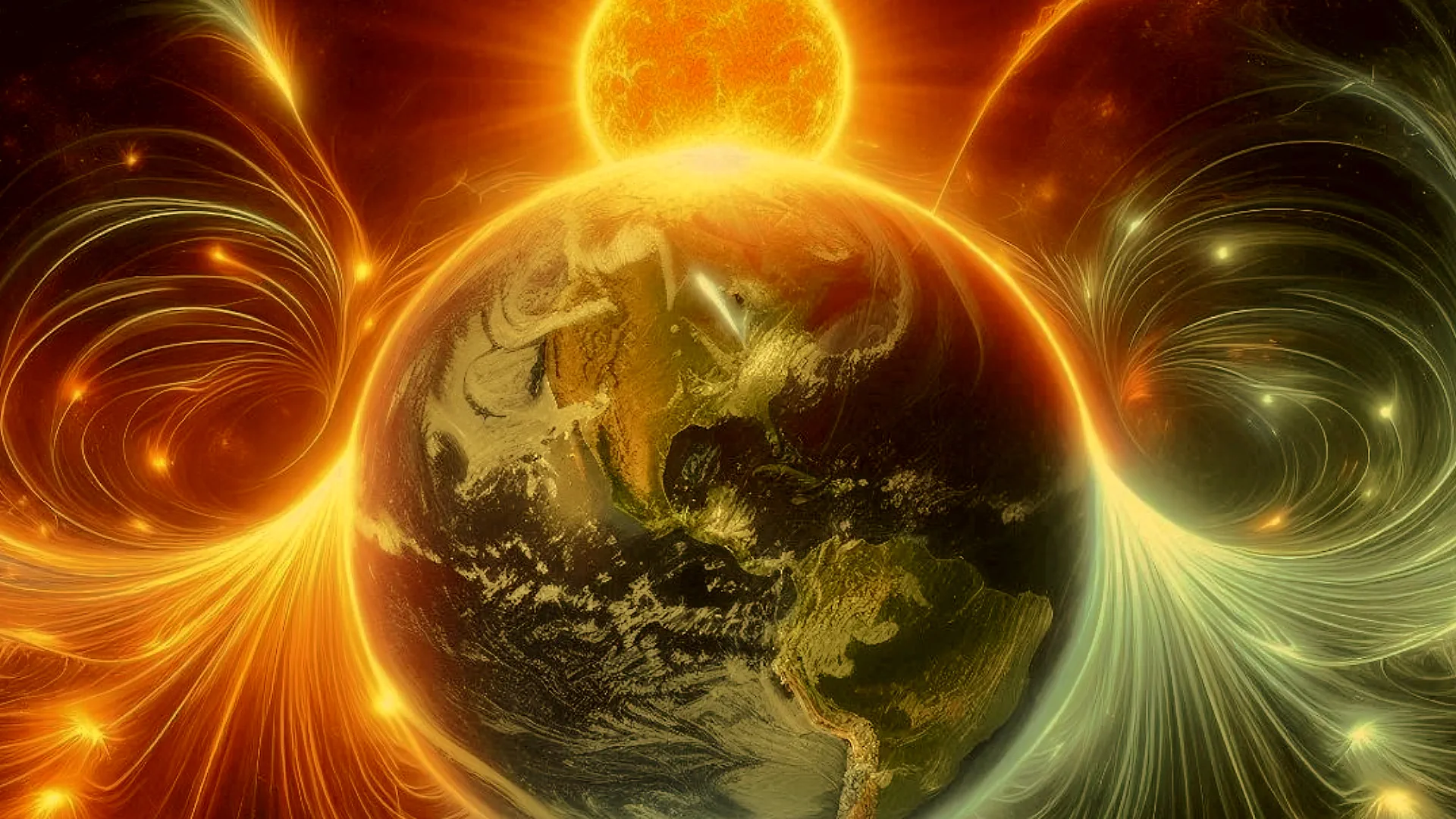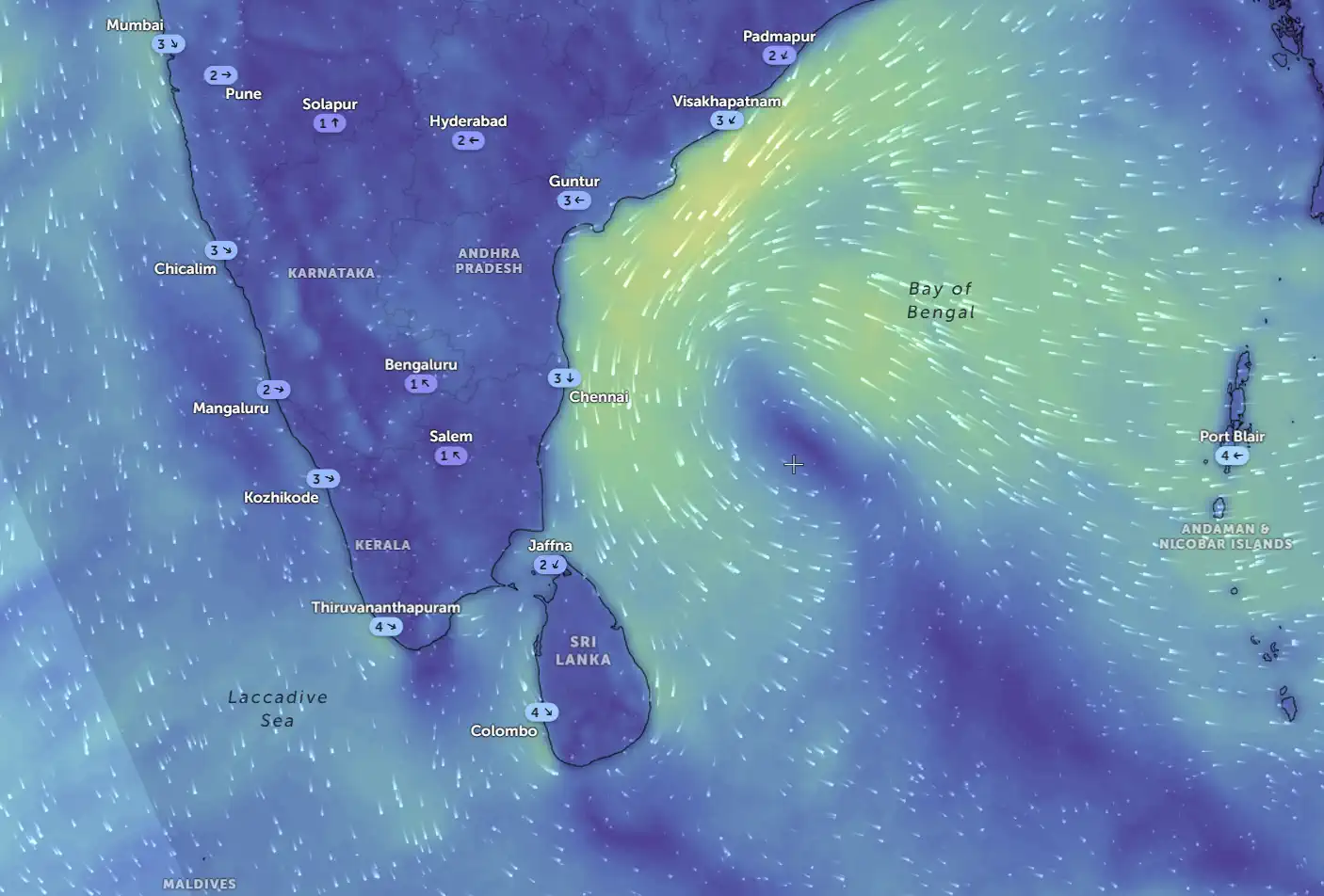
Magnetic storms - how to heal and stop feeling them.
Magnetic storms and their impact on human health remain a subject of debate and research. Although there is currently no definitive evidence that magnetic storms can significantly affect health, this phenomenon continues to arouse interest among both scientists and people who are confident in their weather dependence.
Perhaps you are one of them, and someone else's health deteriorates during geomagnetic storms and solar flares. Some of these people say that they even suffer from phones, microwaves, and 5G towers.
And despite the significant difference in the strength of the magnetic field, for example, between a powerful magnetic storm that was just recently and magnetic resonance imaging (MRI), which is used in medical diagnostics, many people believe that magnetic storms affect their well-being.
Possible symptoms often include headaches, general weakness, and even exacerbations of chronic diseases.
There are many theories trying to explain how exactly magnetic storms can affect the body.
For example, scientists have noticed that some animals, such as birds and sharks, have the ability to sense changes in the magnetic field, which allows them to navigate in space. And even in bacteria, scientists have noticed that some bacteria at the North Pole swim in one direction, at the South Pole in another, and at the Equator in any direction. Although similar mechanisms in humans have not yet been confirmed, this hypothesis remains the subject of active research.
But let's return to the geomagnetic storms themselves. In 2015, a study was published in Scientific Reports in which the authors tried to identify a connection between geomagnetic activity and the frequency of headache mentions on social networks.
The researchers analyzed 63 million Twitter posts that mentioned headaches and compared them with solar activity data. However, despite the huge sample, no significant correlation was found between solar flares and the frequency of headache complaints.
By the way, social network analysis works great, for example, in this way scientists have learned to predict outbreaks of infectious diseases such as influenza and even determine where they began, long before official sanitary and epidemiological surveillance data appeared. But here, it seems like a huge sample, but absolutely no correlation was found.
What if we look at what psychological characteristics distinguish weather-sensitive people from others?
To study this issue, a large study was conducted and here's what was found out: firstly, there were many more women among the sensitive ones, that is, for some reason, the female body is more sensitive to magnetic storms than the male one.
Weather sensitivity - often accompanies people with specific personality traits, the first trait being anxiety.
- Anxiety is a feeling of an undefined threat that comes from nowhere.
- The second trait is cyclothymia, that is, a tendency to frequent mood swings. Well, maybe these people are so fed up with magnetic storms that they have become anxious.
Perhaps, but now we at least know that weather dependence and anxiety are interconnected, now we just have to figure out what affects what, psychology on sensitivity to magnetic storms or magnetic storms on psychology.
Or maybe some third factor affects both. Some kind of radiation from towers.
The fact is that meteosensitivity is one of the varieties of the so-called idiopathic environmental intolerance it is also called multiple chemical sensitivity if anything idiopathic does not mean what you thought but a condition that arose for an unclear reason and it is not clear what it is connected with just like in our case but at the same time different forms of idiopathic intolerance can have very similar symptoms And therefore they can have similar biological mechanisms
Idiopathic intolerance.
This is such an umbrella diagnosis people who have it claim that they have a stable negative reaction to some factor in the everyday environment and it does not matter what factor it is biological, chemical or physical someone complains about chemtrails, someone about plastic, someone about pesticides or GMOs, someone about electromagnetic fields someone about changes in weather and pressure.
The main thing is that all these people have surprisingly similar complaints: headaches, fatigue, depression, a feeling of lack of air, muscle pain, nausea, dizziness, memory problems, and always, an unclear Mysterious mechanism of action.
There are skeptical scientists who completely reject people's personal experience and say that all this is nonsense. And people themselves make it up yourself feel bad. And there are people who genuinely suffer from it.
Nocebo
There is such an effect - Nocebo. This is the evil twin brother of the Placebo effect - a subjective improvement in well-being in response to the expectation of this improvement. Well, for example, after taking a dummy drug to reduce the feeling of pain.
With Nocebo, everything is the opposite, a person is given a neutral pill, but they warn that this substance will allegedly increase pain. Any negative expectation of a person can act as a nocebo, for example, a magnetic storm, a change in the weather or a radio tower under the window, you wait and you will get worse, so strong is the Nocebo effect.
In other words, if you expect deterioration, then this really affects your well-being. Thus, anxiety increases the perception of pain.
People who complain of weather sensitivity often complain of sensitivity to chemicals, plastic, and so on. And this is logical if we assume that all types of this idiopathic intolerance have a common psychological cause, if we have proven that anxiety can actually increase Pain in a person, then this pain can be caused by many different things.
The main thing is that they all cause anxiety, this is also supported by the fact that idiopathic intolerance of the environment is more common in people who experience long-term psychological discomfort. For example, they suffer from depression. Just imagine a person lived without grieving and did not even think about the fact that some environmental factor, for example, rain, causes him pain, but One day he woke up with pain and noticed that the weather outside was terrible and now bad weather for this person is Nocebo. That same neutral pill that increases pain because he expects it and this happens not in fantasy but in reality.
Those doctors who note weather dependence and explain that you made it all up, everything is in your head, they are both right and wrong at the same time. Yes, it is in the head, but we have already understood that people are actually suffering. But why shouldn't it be true? On the other hand, it turns out that denying weather dependence has psychotherapeutic value.
After all, if a doctor can convince a patient that his pain is intensified precisely by anxiety, by the expectation of pain, and not by the weather or a magnetic storm, then this will be the only real cure. The opposite is also true: people who spread stories about the harm of geomagnetic storms and pressure changes may themselves, without wanting to, infect others with weather dependence and other anxieties that increase suffering. Keep this in mind.
Perhaps in the future, new research will help to better understand the mechanisms underlying such phenomena and separate real effects from self-hypnosis. But remember, even if you feel the influence of magnetic storms on your health, it is important to maintain critical thinking and not to forget that the nature of our perception is often more complex than it seems at first glance.
Founder and chief forecaster of the Pogodnik service. He has many years of experience in the meteorological service. He is the author of numerous scientific publications and popular articles about the weather.




